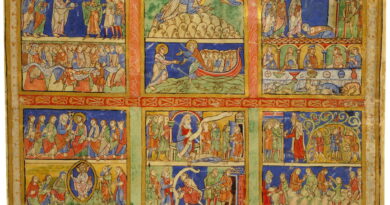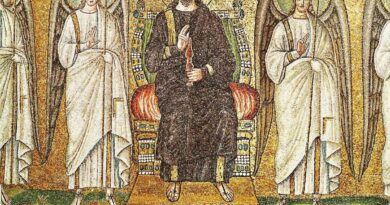Solemnity of the Immaculate Conception
Massimo Palombella

The Immaculate Conception of Mary is a Dogma of faith proclaimed by Pope Pius IX on 8 December 1854 with the bull ‘Innefabilis Deus’, according to which the Virgin Mary was preserved free from original sin from the first moment of her conception.
Today’s celebration inevitably leads us to reflect on that reality of our lives of which, if we are attentive to what happens to us, we experience daily, namely, what Christian tradition calls “original sin”.
Becoming seriously aware of our weakness, of what ‘doesn’t work’ in our lives, of what we encounter within ourselves without having chosen or deserved, is the first step to begin that journey of redemption, of ‘salvation’.
On this journey we slowly move from the conviction that we are the authors of the quality and functioning of our lives, to the awareness that we are ‘saved’, loved before any of our merits, expected and welcomed with infinite love and mercy precisely in our weakness, in what ‘does not work’.
Learning to be with one’s own weakness, to be able to love ourselves in what in us “does not work” is to open with effort that small crack through which God, the true God – not the one we invent to make ourselves seem good or to punish ourselves – can enter our existence and lead us with love and infinite mercy to “life in abundance”.
The entrance antiphon, the Introit, , the Ingressa (in the Ambrosian Rite) of today’s celebration is taken from the Prophet Isaiah (Is 61:10) with the following text:
“Gaudens gaudebo in Domino,
et exsultabit anima mea in Deo meo;
quia induit me vestimentis salutis,
et indumento iustitiæ circumdedit me,
quasi sponsam ornatam monilibus suis.”
(I will greatly rejoice in the Lord,
and my soul shall be joyful in my God;
for he has clothed me with the garments of salvation;
and with the robe of righteousness he has covered me,
as a bridegroom decked with a crown, and as a bride adorned with her jewels).
The attached music, in Ambrosian Chant, is taken from the Antiphonale Missarum Iuxta Ritum Sanctæ Ecclesiæ Mediolanensis, published in Rome in 1935, which, to date, is the only ‘official’ book of Ambrosian Chant for the Eucharistic Celebration. The live interpretation is by the Cappella Musicale del Duomo di Milano at the Pontifical Celebration on 8 December 2022.
A blessed feast and heartfelt greetings.


